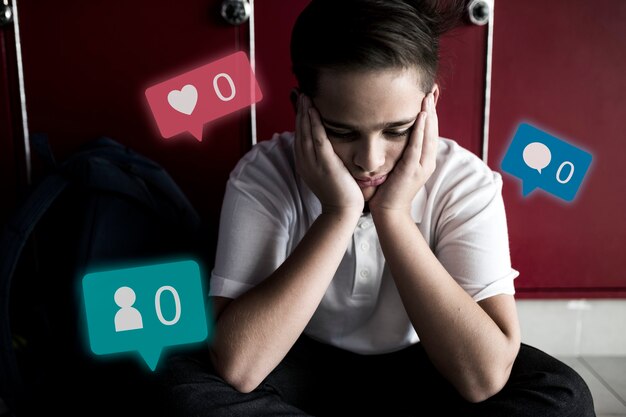How to Help Kids Regulate Their Social Media Use for Optimal Mental Health
As parents and caregivers, it is our responsibility to help children regulate their social media use to promote optimal mental health. This involves setting time limits, encouraging open dialogue, promoting offline activities, and teaching self-regulation skills.
Equipo KidsUp
1/15/20243 min read


As parents and caregivers, we are concerned about the impact that social media has on our children and how this may affect their development of social skills and emotional regulation. In the digital age we live in, it is important to understand how we can help our children regulate their use of social media to promote optimal mental health.
The effects of social networks on children
Social networks have become an integral part of the lives of children and adolescents. Although they may have benefits, such as staying connected with friends and family, there are also risks associated with excessive or inappropriate use.
One of the main effects of social media on children is the impact on their mental health. Constant access to social networks can generate anxiety, depression and low self-esteem. Constant comparison with others and the pressure to maintain a perfect image can have a negative impact on children's emotional health.
Additionally, excessive use of social media can interfere with the development of social skills in the real world. Children may lose the ability to communicate and relate face-to-face, which can impact their ability to form healthy relationships and develop empathy.
Tips to help children regulate their use of social networks
Fortunately, there are several strategies that parents and caregivers can implement to help children regulate their social media use and promote optimal mental health:
1. Set time limits
It is important to set clear limits on the time children can spend on social media. This may include setting specific times for using electronic devices and establishing rules about using social media during study hours or before bed.
Additionally, it is important to model balanced behavior when using social media. Children learn from our examples, so if they see that we too set limits and disconnect from time to time, they are more likely to follow our example.
2. Encourage open dialogue
It is essential to maintain an open dialogue with children about the use of social networks. Talk about the risks and benefits, and listen to their concerns and experiences. This will allow them to feel more comfortable sharing any problems or uncomfortable situations they may encounter online.
Additionally, it is important to teach them how to recognize and respond to situations of cyberbullying or inappropriate content. Establish clear rules about what to do if you encounter these situations, and make sure they know how to block and report problematic content or users.
3. Promote offline activities
An effective way to help children regulate their use of social networks is by encouraging offline activities. Encourage your children to participate in extracurricular activities, play sports, read books, do crafts, or spend time outdoors.
These activities will not only provide them with a healthy alternative to using social media, but will also help them develop social skills, creativity, and concentration.
4. Teach self-regulation skills
Teaching children self-regulation skills is essential to help them regulate their use of social media. This involves teaching them to recognize and manage their own emotions, set limits and make informed decisions about when and how to use social media.
One way to do this is by establishing clear rules about social media use and helping them create an action plan to handle situations where they feel they are spending too much time online or are being emotionally affected by what they see on social media. social networks.
In short, as parents and caregivers, it is our responsibility to help children regulate their social media use to promote optimal mental health. This involves setting time limits, encouraging open dialogue, promoting offline activities, and teaching self-regulation skills.
By taking proactive steps and providing a supportive environment, we can help our children develop a healthy relationship with social media and promote their emotional and social well-being.
